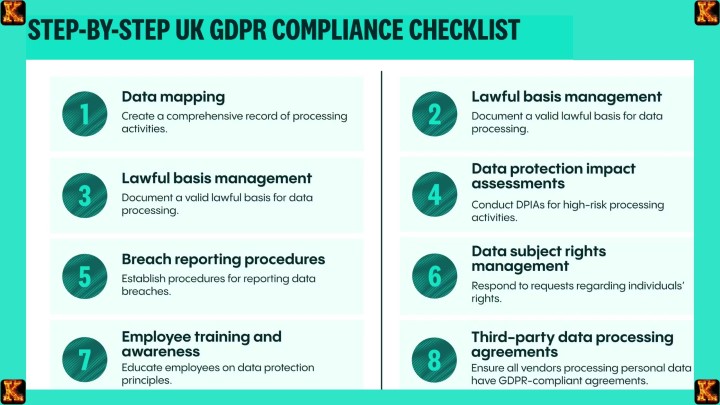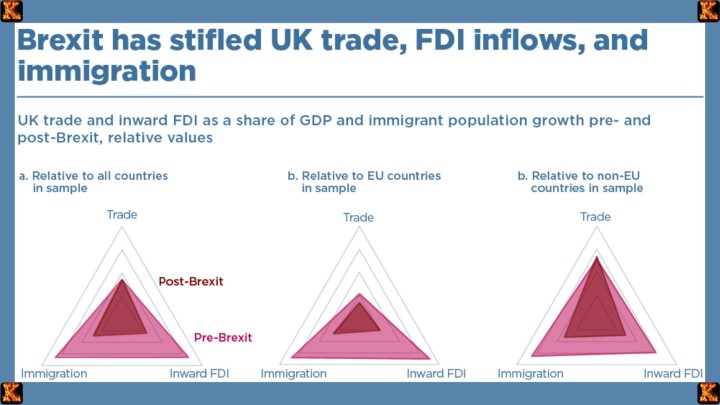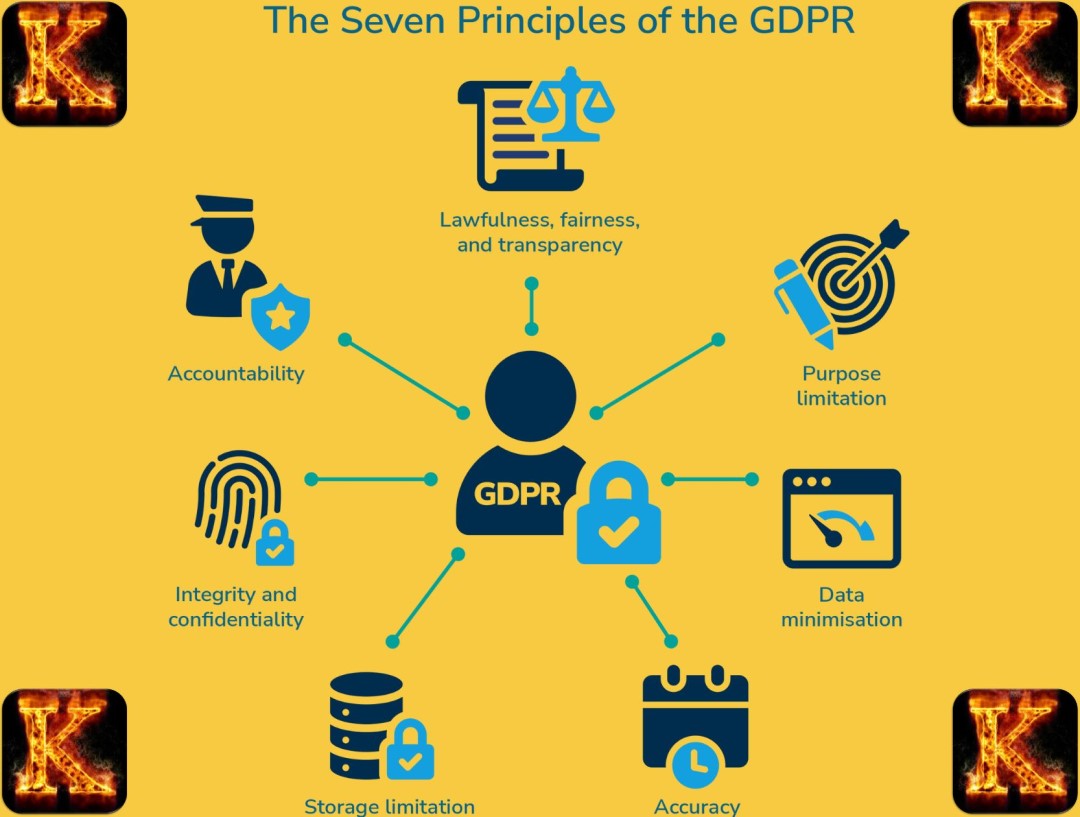Introduction
The United Kingdom’s departure from the European Union (EU) in January 2020 marked a turning point in how data protection is governed across the UK. Prior to Brexit, the UK operated under the EU’s General Data Protection Regulation (GDPR), a comprehensive framework that unified data privacy laws across all member states. However, Brexit brought both new opportunities and complex challenges as the UK gained the autonomy to shape its own data governance rules.
This article delves into how the UK’s data protection landscape has evolved in the post-Brexit era. It examines the legal foundations that currently govern personal data, the implications of the UK’s adequacy status, areas where UK regulations diverge from EU standards, mechanisms for international data transfers, and the broader outlook for businesses and regulators navigating this dynamic field.
1. A Clear Picture of Data Protection in the UK Pre-Brexit
Full Integration into the EU Data Protection Framework
Before Brexit, the United Kingdom was an integral part of the European Union’s data protection system. The cornerstone of this framework was the General Data Protection Regulation (GDPR), which came into force in May 2018. GDPR aimed to harmonize data protection laws across all EU member states, providing a single set of rules for handling personal data and ensuring a high standard of privacy for all individuals in the EU, including those in the UK.
UK GDPR Implementation via the Data Protection Act 2018
To incorporate GDPR into domestic law, the UK passed the Data Protection Act 2018. This legislation aligned the UK’s legal system with GDPR’s core principles such as transparency, purpose limitation, data minimization, and accountability. As a result, UK citizens had clearly defined rights over their personal data, including rights to access, rectify, delete, or restrict processing. Organizations had strict obligations to handle data lawfully, securely, and with respect for individual rights.
The Role of the Information Commissioner’s Office (ICO)
The Information Commissioner’s Office (ICO) served as the UK’s independent supervisory authority under the EU framework. It had a wide mandate: enforcing compliance, issuing guidance, conducting audits, and imposing significant fines for non-compliance. The ICO also coordinated with other EU regulators as part of a larger enforcement network, ensuring consistency in the application of GDPR across borders.
Cross-Border Cooperation Through the One-Stop-Shop Mechanism
One of the key features of GDPR was the “one-stop-shop” mechanism. This allowed businesses operating in multiple EU states to deal with just one lead supervisory authority, typically in the country of their main establishment. For UK-based companies, the ICO often played this central coordinating role, simplifying regulatory oversight and dispute resolution across the EU.
Unrestricted Flow of Personal Data Within the EU
Importantly, because the UK was part of the EU legal framework, personal data could move freely between the UK and other EU member states without the need for additional safeguards. This frictionless data flow supported cross-border trade, research collaboration, and international business operations, an advantage that UK organizations widely relied on before Brexit reshaped the landscape.
Read Also: How to Write a Letter to the Editor of a Scientific Journal
2. UK GDPR: The Domestic Successor
In the aftermath of Brexit, the UK adopted a tailored version of the EU’s General Data Protection Regulation, known as the UK GDPR, which came into force on January 1, 2021. This domestic framework operates alongside the Data Protection Act 2018 and the Privacy and Electronic Communications Regulations (PECR), forming the foundation of the UK’s data protection regime.
Territorial Scope
The UK GDPR applies extraterritorially, meaning it governs not only UK-based organizations but also foreign entities that offer goods or services to individuals in the UK or monitor their behavior. This ensures that any company processing UK residents’ data must comply with UK data protection standards, regardless of where the business is located.
Rights of Data Subjects
UK data subjects maintain the comprehensive suite of rights established under the EU GDPR, including:
-
Right of access – to obtain copies of their personal data;
-
Right to rectification – to correct inaccurate or incomplete data;
-
Right to erasure (“right to be forgotten”) – under specific circumstances;
-
Right to restriction of processing – in certain situations;
-
Right to data portability – to transfer data between service providers;
-
Right to object – to processing for purposes such as direct marketing or profiling.
Accountability and Compliance
A core principle of the UK GDPR is accountability. Organizations are expected to demonstrate compliance through:
-
Maintaining up-to-date documentation of data processing activities;
-
Conducting Data Protection Impact Assessments (DPIAs) for high-risk processing;
-
Applying data protection by design and by default, integrating privacy measures at all stages of product or system development.
These obligations promote proactive risk management and responsible data governance.
International Data Transfers
Organizations transferring personal data outside the UK must ensure adequate protection through legal mechanisms such as:
-
Adequacy decisions – granted to jurisdictions with equivalent data protection laws;
-
Standard Contractual Clauses (SCCs) – binding agreements for data sharing;
-
International Data Transfer Agreements (IDTAs) – the UK-specific counterpart to EU SCCs.
These tools help maintain data security across borders and uphold individuals’ rights.
Regulatory Independence and Future Flexibility
While the UK GDPR largely mirrors its EU predecessor, it now functions as an autonomous legal regime. This regulatory independence provides the UK government with flexibility to reform data laws over time, potentially diverging from EU standards to pursue innovation, business competitiveness, or a more risk-based regulatory approach.

3. EU-UK Data Adequacy Agreement
Following Brexit, the uninterrupted flow of personal data between the UK and EU emerged as a critical concern for businesses, especially those with cross-border operations. The General Data Protection Regulation (GDPR) prohibits the transfer of personal data from the EU/EEA to third countries unless adequate protection is ensured. To resolve this, the European Commission adopted two adequacy decisions for the UK in June 2021, one under the EU GDPR and another under the Law Enforcement Directive.
Purpose and Scope of the Adequacy Decisions
These decisions acknowledged that the UK’s data protection laws, including the UK GDPR and the Data Protection Act 2018, offer a level of protection for personal data that is essentially equivalent to that provided under EU law. As a result, personal data can continue to move freely from the EU/EEA to the UK without additional legal safeguards, such as Standard Contractual Clauses (SCCs), Binding Corporate Rules (BCRs), or International Data Transfer Agreements (IDTAs).
Positive Impact on Businesses
The adequacy decisions have brought tangible benefits for businesses that handle personal data across UK–EU borders. These include:
-
Avoiding administrative burdens of drafting and implementing complex contractual mechanisms for each transfer,
-
Maintaining seamless digital operations, such as customer communications, cloud services, and internal HR systems,
-
Enhancing legal certainty, allowing organizations to plan their operations and compliance strategies with confidence.
This stability has been particularly valuable for sectors like tech, finance, health, and e-commerce, which depend heavily on the efficient movement of data.
Sunset Clause and Periodic Review
However, this adequacy status is not indefinite. It includes a sunset clause, meaning the decision is valid for four years and subject to periodic review. The European Commission is expected to reassess the UK’s adequacy in 2025. Moreover, the EU retains the right to suspend or revoke adequacy at any time if the UK’s data protection regime is found to diverge substantially from EU standards.
Conditional Status and Legislative Constraints
While adequacy brings short-term advantages, it also imposes long-term constraints on the UK’s regulatory freedom. If the UK chooses to reform its data protection framework in ways that weaken or deviate from the GDPR, for example, by reducing individuals’ rights or loosening restrictions on data processing: this could trigger an EU review and possible withdrawal of adequacy. Losing adequacy would not only disrupt data flows but also reintroduce costly compliance burdens for UK-based organizations seeking to continue doing business with EU partners.
Read Also: Writing a Skeleton Argument for Summary Judgment
4. UK’s Divergence from EU GDPR
Post-Brexit, the UK has begun to chart a more independent course in data protection. The government has expressed a strong intention to build a more flexible, business-friendly, and innovation-driven data regime, diverging gradually from the rigid structure of the EU GDPR.
This shift is embodied in the proposed Data Protection and Digital Information (DPDI) Bill, currently under parliamentary review.
Proposed Reforms Under the DPDI Bill
The DPDI Bill introduces several changes aimed at reducing compliance burdens and encouraging economic growth:
Reducing Red Tape for Organisations
The Bill proposes removing certain GDPR obligations, such as the mandatory appointment of Data Protection Officers (DPOs) and the requirement to maintain Records of Processing Activities (ROPAs), at least for lower-risk organisations. This is intended to ease the regulatory burden on SMEs and startups.
Changes to Data Subject Access Requests (DSARs)
Under the current UK GDPR, individuals can request access to their personal data at no cost. The DPDI Bill would allow organizations to refuse or charge for DSARs deemed "vexatious" or excessive, potentially limiting misuse of the process.
Flexibility in International Data Transfers
The Bill would enable the UK to recognize third countries as "adequate" for data transfers using a risk-based, context-sensitive approach, rather than requiring a strict equivalence to UK standards. This could open up faster and more strategic international partnerships.
Reorienting the ICO’s Role and Governance
The reforms also propose reshaping the Information Commissioner's Office (ICO), introducing a statutory board, and aligning the regulator’s priorities with national economic and innovation goals. Critics worry this may compromise its independence, while supporters see it as a modernization effort.
Balancing Innovation and Adequacy Risks
While these reforms are intended to stimulate technological development and investment, they pose a potential risk to the UK’s EU adequacy status. The European Commission may view substantial legal divergence as undermining data protection equivalence, which could result in the loss of adequacy and disrupt EU-UK data flows.
This tension highlights a central challenge for post-Brexit UK data policy: balancing regulatory sovereignty with international interoperability.

5. International Data Transfers
In the aftermath of Brexit, cross-border data transfers have emerged as one of the most legally intricate and strategically important aspects of UK data protection. As the UK is no longer part of the EU’s regulatory framework, it has gained autonomy to set its own rules governing international data flows. However, it continues to align closely with global standards to maintain trust and facilitate international trade.
Post-Brexit Autonomy in Data Transfers
Under the UK General Data Protection Regulation (UK GDPR), personal data may only be transferred outside the UK if the receiving country provides an adequate level of protection, or if appropriate safeguards are in place. While these foundational principles mirror those of the EU GDPR, the UK now independently assesses and authorizes transfer mechanisms.
Key Mechanisms for Lawful Transfers
1. Adequacy Regulations
The UK government has granted adequacy status to several countries, permitting data to flow freely to those jurisdictions without additional safeguards. These currently include:
-
The European Economic Area (EEA)
-
Switzerland
-
New Zealand
-
Japan
-
South Korea
-
Other recognized territories
These adequacy determinations signify that the data protection standards in these jurisdictions are essentially equivalent to those of the UK.
2. International Data Transfer Agreements (IDTAs)
To replace the EU’s Standard Contractual Clauses (SCCs), the UK has introduced the International Data Transfer Agreement (IDTA). This instrument:
-
Provides a standardized framework for ensuring data protection when exporting data to non-adequate countries,
-
Is legally binding and enforceable,
-
Can be tailored through a UK Addendum to the EU SCCs, allowing for hybrid use in global contracts.
This mechanism offers organizations flexibility while maintaining legal compliance.
3. Binding Corporate Rules (BCRs)
For multinational corporations, Binding Corporate Rules remain a preferred mechanism for intra-group data transfers. These:
-
Must be reviewed and approved by the Information Commissioner’s Office (ICO),
-
Require demonstrably strong data protection practices, governance frameworks, and oversight mechanisms,
-
Are especially beneficial for large, decentralized companies operating across multiple jurisdictions.
Legal and Strategic Challenges
While the UK has designed its own transfer tools, organizations still encounter several complexities:
-
Regulatory fragmentation: Navigating diverging legal frameworks between the UK, EU, and other jurisdictions can increase compliance costs and legal risk.
-
Uncertainty in legal alignment: Future changes in UK law may lead to misalignment with EU standards, potentially complicating data exchanges with the EU.
-
Ongoing compliance obligations: Organizations must regularly monitor developments, reassess risk levels, and update contractual safeguards.
-
Geopolitical and trade dynamics: Political shifts and future trade negotiations could influence which countries the UK deems adequate.
Outlook
As the UK pushes to become a global leader in digital trade, data mobility remains central to its strategy. The government aims to strike a balance between safeguarding personal data and enabling frictionless global commerce. However, maintaining international trust while evolving independently will require careful legal and diplomatic navigation.
Conclusion
Post-Brexit, the UK has retained a GDPR-style data protection regime while exploring regulatory reforms to support innovation and economic growth. The current framework, anchored in the UK GDPR, Data Protection Act 2018, and the ICO’s enforcement, offers continuity, but future legislative divergence could reshape the data landscape. Maintaining high privacy standards, fostering global data flows, and ensuring regulatory certainty will be vital to the UK’s digital future.


Comments are closed!